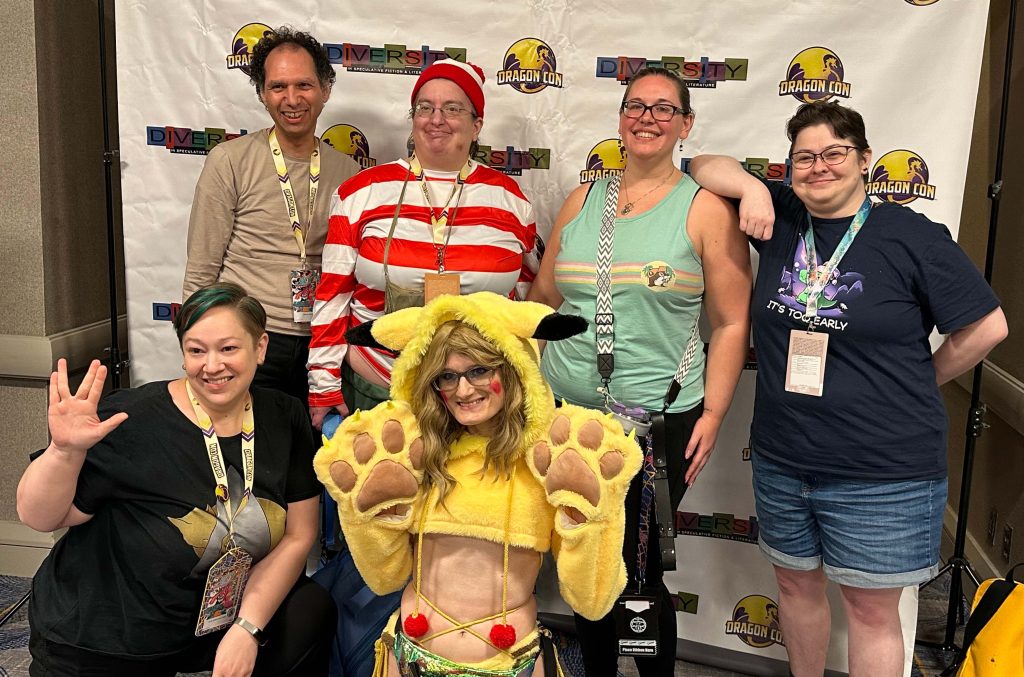
The Diversity Track started to wind down its programming with “Asexuality on Screen: Visibility & Beyond” on Monday at 11:30AM in Hyatt Hanover AB. The panelists, Brian Doob, Niki Veasey, Elyssa Derka, Shana Adelman, Susan Kisenwether, and Bethany DJ Kesler started out by giving everyone a primer on asexuality and various terminology so that everyone would be on the same page and using the same language.
With the help of a PowerPoint, the panelists walked us through the sexual attraction and romantic attraction spectrums, which can be different or they can align, and how the aromantic/asexual community puts effort into education so that people can begin to understand themselves. The panel emphasized that there are many types of attraction: aesthetic, platonic, sensual, and others. In fact, sometimes a single physical feature can be what enthralls you. There are endless possible combinations of romantic or sexual preferences and identities.
It was important for everyone to understand that asexual people are queer and that they face discrimination. With a society and popular culture that is obsessed with sex and romance, asexual people face isolation and fundamental misunderstanding, including the idea that asexuality is something that needs to be “fixed.” Understanding that attitudes about sex can differ within the asexual community is key. Asexuality is not the same as celibacy; celibacy is a deliberate choice not to have sex, even if you enjoy it or experience sexual attraction.
After the panel ran through some characters that they interpret as being on the asexual spectrum, they focused on some tropes about asexuality that should absolutely die. Among them the idea that asexuals don’t know anything about sex. They actually know a lot, and a lot of smut writers are actually ace. Another is the idea that every single story needs to have a love interest, whether requited or not. The panel summed up their comments by saying that “words are important.” Finding out that there is a word or words for how you feel makes it clear that you are not alone and that your experiences are also someone else’s normal.
